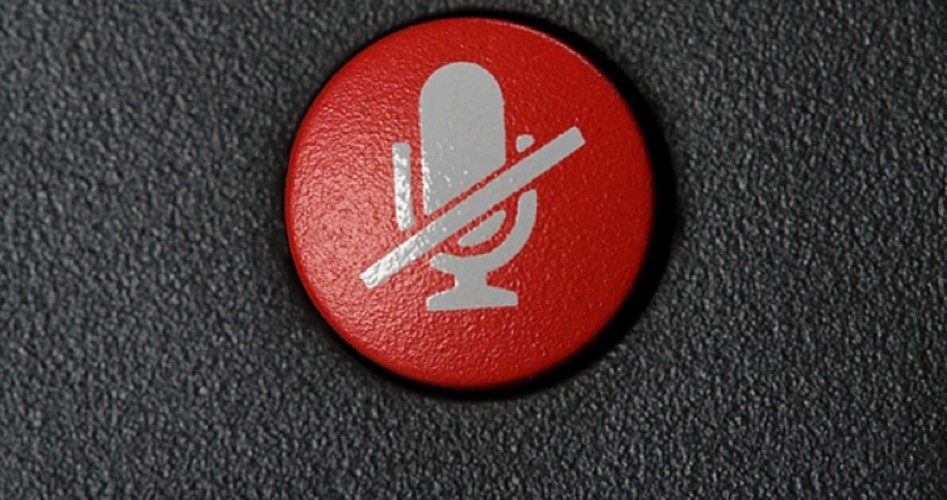
Podcast: Play in new window | Download ()
Subscribe: Android | RSS | More
In an age where a British politician was arrested for publicly quoting legendary statesman Winston Churchill, it’s not surprising that a loose Internet comment can get a person in trouble. And this may be what’s happening in the case of six Internet posters whom the federal government believes issued “threats” against a federal judge.
The commenters made their remarks at Reason.com under an article about a letter from libertarian Ross Ulbricht, who found himself on trial for running “Dark Web” website Silk Road, a virtual black market that facilitated illegal drug transactions. In the letter Ulbricht pleaded for leniency from U.S. District judge Katherine Forrest — but it fell on deaf ears. Forrest handed him two concurrent life sentences plus 40 years, with no possibility of parole.
This didn’t sit well with Ulbricht’s supporters, many of whom view him as a “Crypto-anarchist” hero who received a gratuitously harsh sentence from an increasingly despotic government. And, not surprisingly, these passions were reflected in their words. As online magazine Motherboard wrote Tuesday:
“It’s judges like these that should be taken out back and shot,” a user named Agammamon wrote, according to the filing.
The comments are “very clearly not true threats”
“It’s judges like these that will be taken out back and shot. FTFY [fixed that for you].” [sic] a user named Alan replied (emphasis in the [government’s] subpoena). Another user added: “Why do it out back? Shoot them out front, on the steps of the courthouse.”
While it’s clear to most that the commenters were blowing off steam and not issuing serious threats, the federal government may see it differently. As Motherboard also reported, “Ken White of the blog Popehat obtained the grand jury subpoena issued by the Department of Justice last week, which demands ‘any and all identifying information’ the website has pertaining to the threatening commenters. This includes email addresses, telephone numbers, IP addresses, and billing information associated with the accounts.”
What precisely will befall these six individuals isn’t known, but the experience of another Internet commenter is enough to send chills down anyone’s spine. In 2013, 18-year-old Justin Carter got into an argument over a video game while interacting on Facebook. After a friend said something to the effect of “Oh, you’re insane. You’re crazy. You’re messed up in the head,” the teen sarcastically replied, reported CNN, “I’m f—ed in the head alright. I think I’ma (sic) shoot up a kindergarten and watch the blood of the innocent rain down and eat the beating heart of one of them.”
For this Carter spent months in jail and faces eight years in prison for making “terroristic threats.”
He was only released, mind you, because an anonymous donor finally posted his gratuitously high $500,000 bail, and he is still awaiting trial.
The Carter arrest was clearly an over-reaction to the tragic school massacre in Sandy Hook, Connecticut, which occurred just two months prior. But this is why we strive to be a nation of laws, not of men (and their mercurial emotions). And while many would understandably consider Carter’s quip in poor taste, criminalizing poor taste would mean precious few Americans walking around free.
Note that many young men make such jokes. Moreover, tongue-and-cheek remarks, hyperbole, and figurative speech are the spice of commentary; as such, millions of Americans every day — on and off the Web — make statements akin to those of the six Reason.com commenters.
And the famous are no exception. The jovial intellectual G.K. Chesterton once lamented, “It is terrible to contemplate how few politicians are hanged.” Yet while this was certainly lighthearted and generic enough, many celebrities descend into truly ugly rhetoric. Townhall’s John Hawkins provided some striking examples (I sanitized them somewhat) in 2010, writing:
“I want to go up to the closest white person and say: ‘You can’t understand this, it’s a black thing’ and then slap him, just for my mental health” — New York city [sic] councilman Charles Barron
“And then there’s Rumsfeld who said of Iraq ‘We have our good days and our bad days.’ We should put this S.O.B. up against a wall and say ‘This is one of our bad days’ and pull the trigger.” — From a fundraising ad put out by the St. Petersburg Democratic Club
“F*** God D****d Joe the God D****d Motherf*****g plumber! I want Motherf*****g Joe the plumber dead.” — Liberal talk show host Charles Karel Bouley on the air.
Charlie – “you know F— it …. and George Bush wife? I’d F— that b***h to death” — “Shock Jocks” Opie & Anthony talk rape & violence with their guest “Homeless Charlie.”
Yet none of these individuals suffered any consequences, let alone being arrested for making “terroristic threats.” It seems that blowing off steam — and even sometimes just making jokes — is not for the little guy.
And it’s not for the traditionalist guy, either. While Hawkins points out that “liberals who actually call for violence and publicly wish death upon conservatives are given a free pass,” even legitimate politically incorrect opinion is increasingly stifled. A good example is a 2014 story about Swedish anti-immigration Internet commenters who were tracked down after a major Swedish newspaper, Expressen, used criminal hackers to break into the Disqus’ commenting system. The paper then published the names and photos of some of these victims, a serious act since opposition to immigration in politically correct Sweden can be a social and financial death sentence. In fact, while Expressen apparently suffered no consequences for its criminal actions, at least one of the immigration opponents lost his job.
And with a 2014 Swedish law making it easier to prosecute politically incorrect Internet speech, and with the U.S. government tracking “hate speech” on Twitter, one can perhaps see the appeal of the “Dark Web.” Also known as the “deep web,” this is, as Wired puts it, a “collection of thousands of websites that use anonymity tools like Tor and I2P to hide their IP address.” It provides as much protection as possible for anonymous whistleblowers and Internet users seeking to avoid surveillance and censorship (a huge factor in places such as China), but it also can be used for illegal and immoral activity.
Moreover, as the Ross Ulbricht Dark Web case perhaps proves, there’s no such thing as complete anonymity with a government that is becoming bigger, and darker, all the time.


